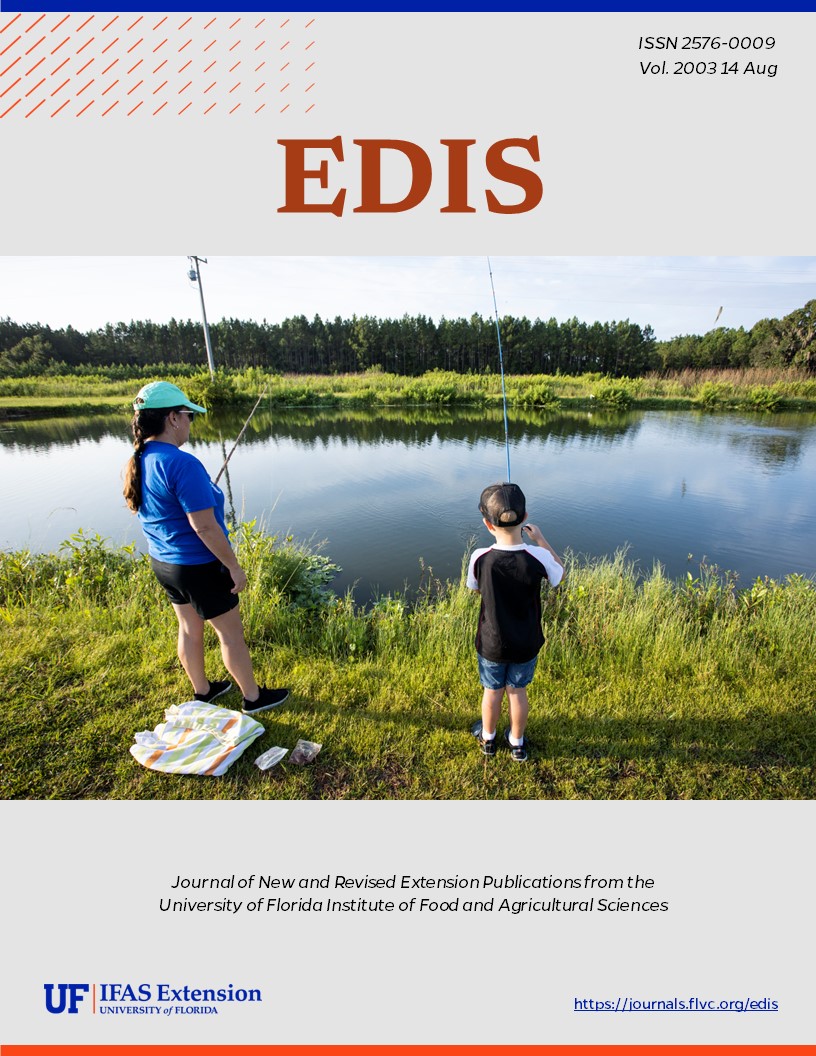Resumen
Crazy ants, Paratrechina longicornis (Latreille), occurs in large numbers in homes or outdoors. They often forage long distances away from their nests, so nests are often difficult to control. The name "crazy ant" arises from its characteristic erratic and rapid movement not following trails as often as other ants. The crazy ant is so morphologically distinctive that it is one of the few Paratrechina that is not consistently misidentified in collections (Trager 1984). This document is EENY-142, one of a series of Featured Creatures from the Entomology and Nematology Department, Florida Cooperative Extension Service, Institute of Food and Agricultural Sciences, University of Florida. Published: June 2000.
Citas
Creighton, W.S. 1950. The ants of North America. Bull. Mus. Comp. Zool. 104. 585 p.
Koehler, P.G., D.E.Short and T.R. Fasulo. (1998). Pests In and Around the Home UF/IFAS. SW-126. CD-ROM.
Mallis, A. 1997. Handbook of Pest Control - The Behavior, Life History, and Control of Household Pests. 7th Edition. Franzak & Foster Co. Cleveland. 1990. 1152 p.
Marlatt, C.L. 1930. House ants. Kinds and methods of control. USDA Farmer's Bull. 740. 12 p.
Smith, M.R. 1965. House-infesting ants of the eastern United States; their recognition, biology, and economic importance. USDA Tech. Bull. 1326. 105 p.
Trager, J.C. 1984. A revision of the genus Paratrechina (Hymenoptera: Formicidae) of the continental United States. Sociobiology 9: 51-162.
Wilson, E.O., and R.W. Taylor. 1967. The ants of Polynesia (Hymenoptera: Formicidae). Pacific Insects Monograph 14. 109 p.
Unless otherwise specified, articles published in the EDIS journal after January 1, 2024 are licensed under a Creative Commons Attribution-NonCommercial-NoDerivs 4.0 International (CC BY-NC-ND 4.0) license.

